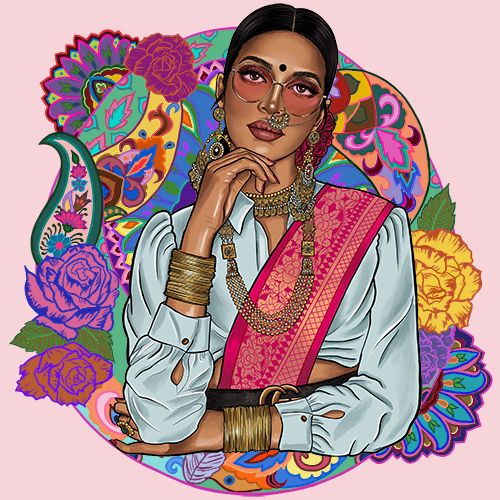
The prevailing preference for fair skin as the epitome of beauty is a well-known aspect of South Asian culture. However, it prompts us to question whether this has always been the case throughout the history of this subcontinent region. WebCapitals is here to explore the evolution of beauty standards in South Asia, shedding light on the intricate changes that have taken place over time.
Beauty standards before Eurocentrism
The environment and society in which we are raised play a crucial role in shaping our perception of beauty. Prior to the European influence on the Indian Subcontinent, girls with a glowy golden skin tone, voluminous black hair, and distinctive almond-shaped eyes were highly valued as embodiments of beauty. They were sought after not only for their representation of beauty but also for various societal roles. The roles include marriage and other roles tied to notions of beauty. This is a contrast to the beauty standards set later after British Imperialism. The British ideals were being thin and tall, having long hair, and having light skin.
To truly understand how beauty standards have changed over time, more in-depth research is required. However, based on what people in our communities have observed and experienced, WebCapitals aims to enlighten you about the transformation of how beauty is perceived in South Asian communities.
The Impact of British Colonisation on Evolving Beauty Standards
During the 19th century, as Europeans began invading greater India, they imposed their culture, language, and values on the colonized regions through tyranny. This is when the seeds of colorism were sown, taking root within these societies. In that era, wealthier individuals with fair complexions often remained indoors, while those in poorer circumstances engaged in manual labor. This evidently affected their skin complexion. Consequently, beyond its association with beauty, skin complexion began to mirror one’s socioeconomic status. As a result, individuals with fair skin received preferential treatment, while those with darker skin tones faced discrimination. They were deprived of the privileges enjoyed by their fair-skinned counterparts in society. From birth, people with darker skin tones, along with their parents, had to endure hurtful comments related to their skin tone. This often lead to their exclusion from marriage prospects within the elite echelons of society.
Consequences Arising from the Influence of British Colonization on Shifting Beauty Norms
Although the British have long departed from South Asia, the perceptions they instilled in people persist, continuing to shape the definition of beauty passed down to successive generations. Presently, Western standards of beauty remain highly esteemed and are emulated by individuals worldwide. Despite being aware of the adverse effects associated with practices like skin bleaching and other whitening treatment, South Asians choose to go for such practices. Besides, they opt for blonde hair color, blue lenses, and skin bleaching . This could be attributed to various factors, such as the desire to assimilate into the culture, particularly relevant for diaspora women. They may choose this path to avoid being an anomaly in the community, escaping discrimination from peers. That could be even to avert racist questions like “are you a dot or feather Indian?”
COLORISM IN BEAUTY INDUSTRY
Besides, due to the obsession with bright fair skin in society, women with dark skin are always anxious about the way they look and tend to look for ways to lighten their skin. One commonly chosen and quite inexpensive option used in South Asian households is “Glow and Lovely”. It was formerly known as “Fair and Lovely” and “Fair and Handsome” for men. This cosmetic product garnered attention due to the “fair” word in its name. The advertisement for promoting this product showed it’s okay to be bullied if you have dark skin. Also, it showed that the only way to gain acceptance from society is by lighten your skin tone.
However, the south asian social narrative is changing for the better. Three years ago, during the black lives matter movement, Unilever faced backlash for its cosmetic products, Fair and Lovely and Fair and Handsome. After facing backlash for promoting negative stereotypes, Unilever has decided to rebrand their product as “Glow and Lovely”. They said publicly that they are committed to make beauty products more inclusive.
Aside from Unilever, other prominent beauty brands such as YSL and Tarte Cosmetics, which introduced products with a restricted range of shades tailored to lighter skin tones. They have inadvertently excluded individuals with deeper skin tones. Yet, in the midst of these biases against people of color, a ray of optimism shines via Rihanna’s triumphant makeup line, Fenty Beauty.
Fenty Beauty not only placed a strong emphasis on making products for those with deeper shades. It also symbolizes a guiding light toward a future where inclusivity prevails in the beauty realm, embracing those long overlooked consumers by the industry.
BEAUTY COMPANIES THAT CELEBRATE SOUTH ASIAN BEAUTY AND CULTURE
Live Tinted
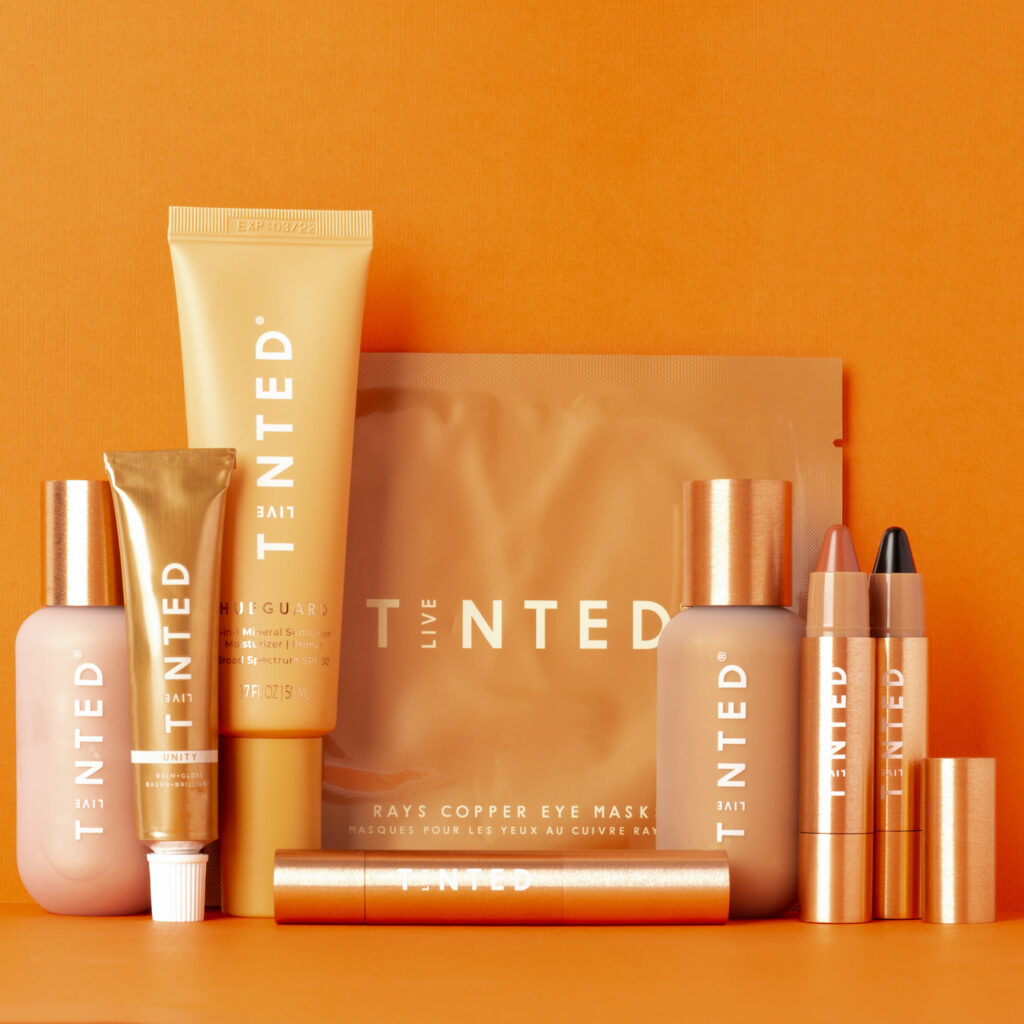
The most famous beauty company for brown skin tone is Live Tinted. The sole purpose of building this makeup line is to reflect the long neglected brown community in the Western world. The founder, Deepica Mutyala has faced challenges while working in the business side of the beauty industry. She said she did not find many people who looked like her. Moreover, she noticed the products that were being developed are only for those light complexion despite many companies having resources and capabilities to make products for people of color. This realization fueled Deepica’s determination to bridge this gap. Live Tinted emerged as a response to the unmet needs of people with hyper-pigmentation, dark circles and more. Every product is a testament to the celebration of diversity, embracing features that have been overlooked for far too long.
Kulfi Beauty
Another beauty company that celebrates South Asian culture and beauty is Kulfi Beauty. The founder, Priyanka Ganjoo, shares a similar purpose behind building this company. She faced identity issues growing up in a Eurocentric community and used to shy away from being involved in beauty culture. However, she was fascinated by the business aspect of beauty and began working for companies like Estée Lauder and Ipsy. Just like Deepica Mutyala and many other brown individuals, Ganjoo never felt represented in the brands and products hitting the market. She decided to take a step to represent South Asian beauty by creating her own makeup line called Kulfi Beauty. They create products designed to complement South Asian skin tones and undertones.
MANGO PEOPLE
Sravya Kalyanapu, founder of Mango People, has always been aware of what truly clean beauty looks like. As Kalyanapu got older and began to explore this industry on her own, she was shocked to see the lack of clean beauty products available. Moreover, she noticed some brands who market themselves as all-natural continue to implement petroleum-based products in their formulas. In addition, as someone with darker skin, it was a struggle to find makeup that was both clean and shade inclusive. This beauty brand makes clean beauty products that are suits brown skin tones.
Bili Beauty
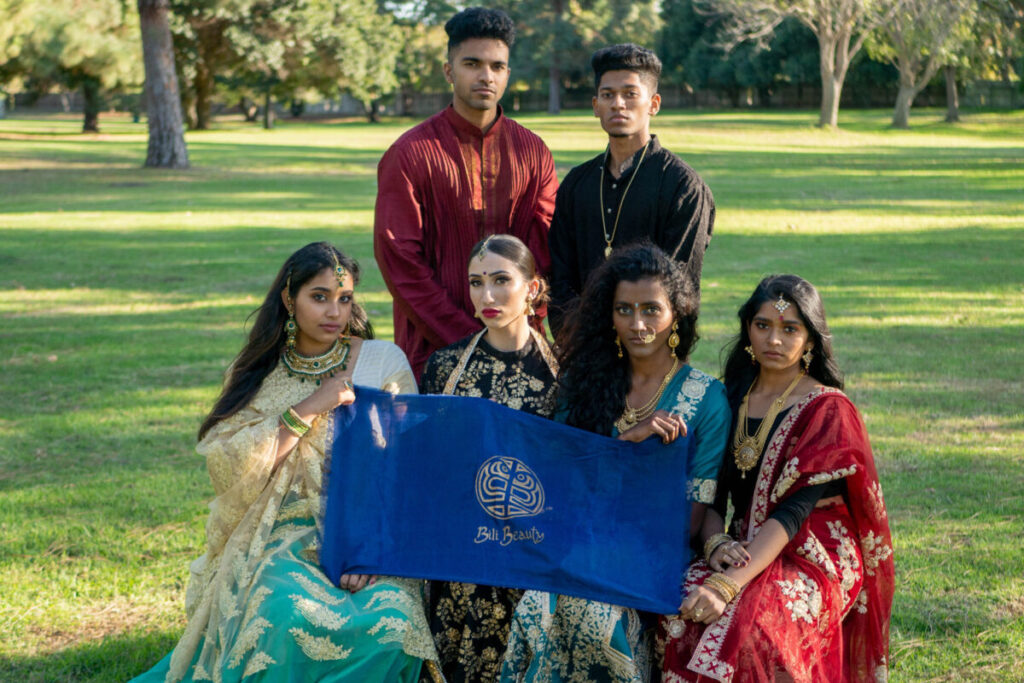
Driven by a deep passion for beauty and a recognition of the underrepresentation in conventional American media, Sarah Sophy Thomas, the founder, took a decisive step into the beauty industry with the intention of effecting change. Having accumulated years of experience in marketing, she made the decision to leave her job and initiate her makeup line. This brand exuberantly honors the elegance inherent in South Indian culture.
SHAZ & KIKS
This represents a haircare brand that re-envisions old Indian traditions for all hair types. Established by a duo of sisters whose unbreakable connection thrives on support, kindness, and joy. Over multiple generations, Indian beauty formulas and beauty customs have been transmitted through Indian women forming a legacy. SHĀZ&KIKS reintroduced those to us. Their mission is to honor the bonds among women and the beauty practices they pass on, by crafting natural, healthful products inspired by Indian heritage. These products attend to your complete hair ecosystem, from the roots to the tips, from the inside out.
REPRESENTATION MATTERS!
Individuals such as Sravya Kalyanapu, Deepica Mutyala, and Priyanka Ganjoo have played significant roles in globally representing South Asian beauty, eloquently showcasing the rich traditions within Western culture. Their collective mission and endeavors have effectively raised awareness within eurocentric communities, prompting a realization of the value and benefits in establishing beauty and wellness brands that embrace inclusivity. This transformation is poised to reshape the narrative surrounding how the world perceive South Asians. Individuals with deeper skin tones will inevitably find newfound confidence in their own skin, marking an eagerly anticipated shift. We await the moment when South Asians can fully partake in the realm of beauty, feeling genuinely embraced and included.
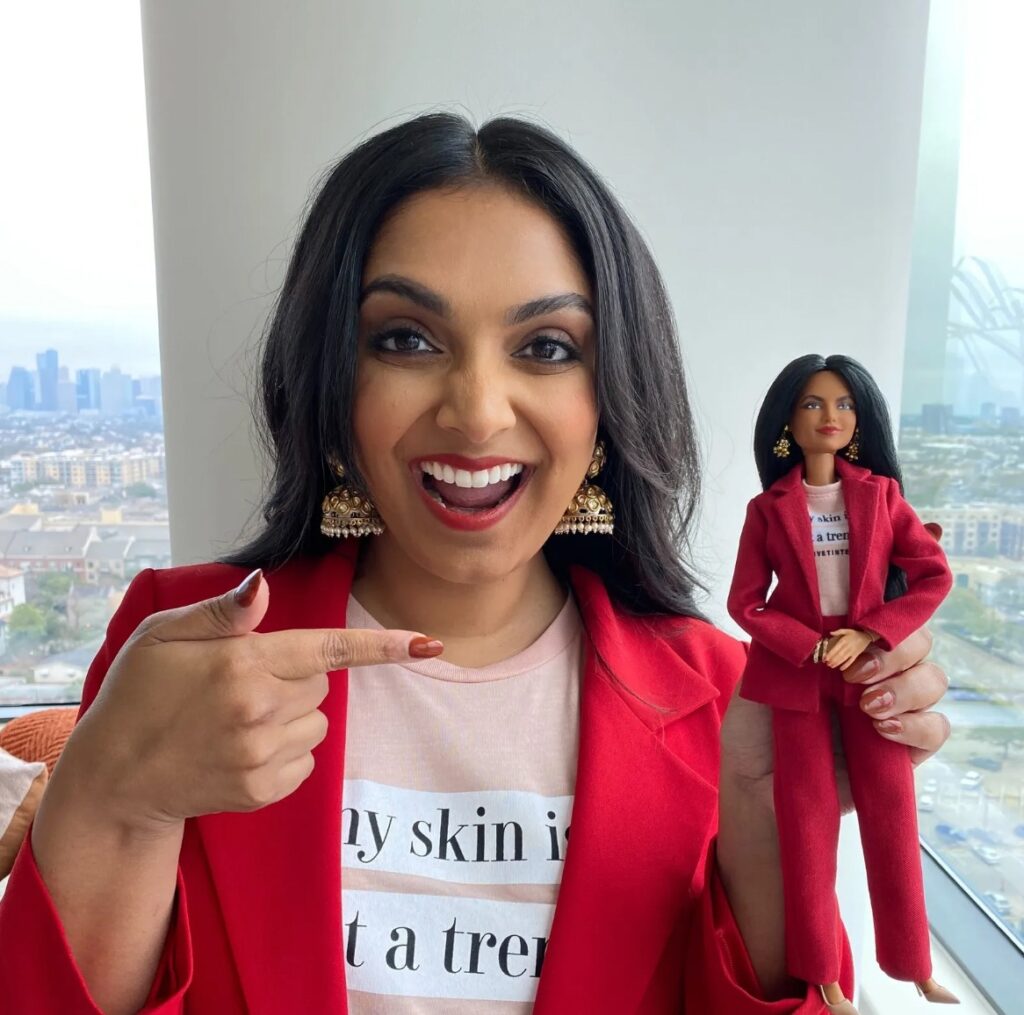
Ganjoo, Mutyala, Sarah Sophy and many other South Asian women embarked on their own beauty ventures, having the same mission to establish all-encompassing beauty brands that mirror their own identities. Their goal is to construct beauty brands that resonate with individuals resembling themselves, while also striving to fashion a space of inclusivity for future generations.
To stay updated about fashion & beauty, business & tech, current affairs and more, follow trusted source like Web Capitals!
























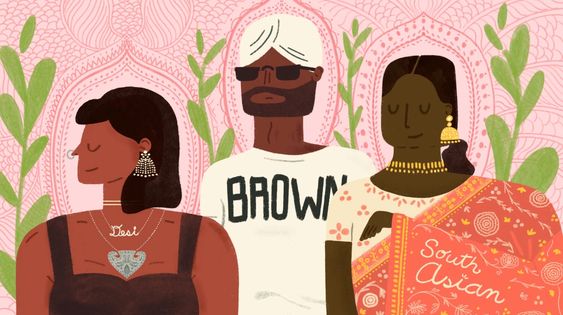
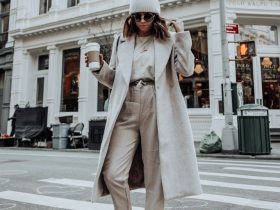
Leave a Reply